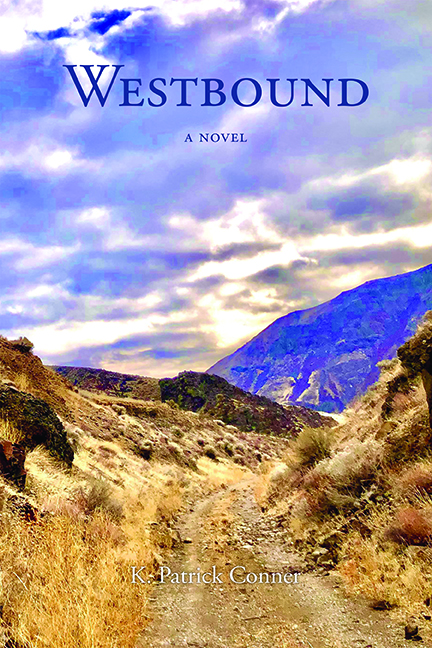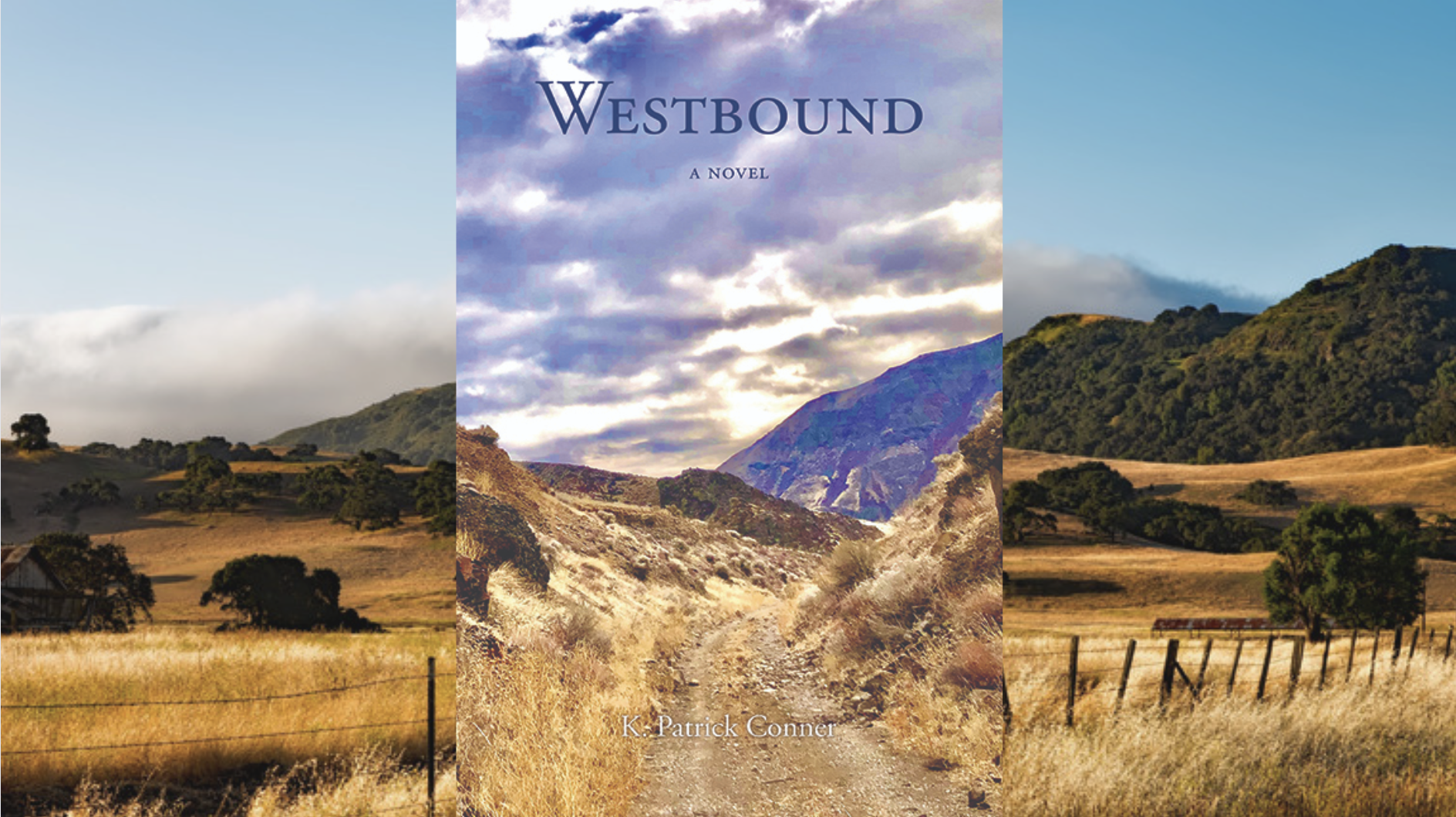Westbound by K. Patrick Conner
A genealogy project documenting the life of his great-grandparent’s westward experiences during the 19th century holds unexpected surprises for retired newspaper editor Elliott Madison in K. Patrick Conner’s charming novel, Westbound (Nacl Press).
History Revealed Through Letters and Journal Entries
Living in San Francisco’s upscale Russian Hill district, Elliott uses his 30-years-experience as editor of the San Francisco Chronicle to research the separate but equally dangerous westbound paths his great-grandfather William and great-grandmother Amelia took to reach California in the mid-1800s. The “logical culmination … and crowning achievement as a researcher and writer in his own right” is Elliott’s manuscript about his ancestors’ lives to “ensure they received the proper recognition as two of Mendocino County’s early pioneers.”
Reading and reflecting on the entries of William’s journal, which chronicled his harrowing sea journey by way of Cape Horn in 1851, Elliott is impressed by his ancestor’s “quiet optimism and sense of anticipation,” knowing in hindsight the terrible trials that awaited William before reaching California.
Equally important are the letters his great-grandmother Amelia wrote to her cousin as she journeyed westward via wagon train in 1854. Both sets of primary documents, a treasure of “indisputable provenance and authority,” provide Elliott all he needs to write his book but also provide bewitching subplots as the reader is drawn into both William and Amelia’s experiences firsthand.
Long-Lost Relatives and Deep Dives into the Past
When a mysterious letter arrives from a stranger in New York City inquiring about a man who may have worked on the Madison family ranch after William’s death in 1864, Elliott sees his horizon unexpectedly widen.
Phoebe Crighton is slightly younger than Elliott, but just as keen to know her family history, in this case, the life of her great-grandmother’s uncle, Benjamin Harrigan, a Civil War veteran who eventually made his way west. Elliott replies he has no information, but Phoebe sends a second package, which includes a copy of a manuscript about Benjamin’s experiences in the 128th New York Volunteer Infantry Regiment.
Unusually bothered by this intrusion into his staid routine of library visits and trying to connect with his troubled, surly twenty-something granddaughter Alissa—who lives in Elliott’s flat—Elliott at first resists Phoebe’s overtures for information. He is too busy fielding phone calls from his daughter, Claire, inquiring about Alissa’s late nights and life choices to indulge in speculation about an obscure Madison farm hand from the deep past.
Or so he thinks, until he begins to read about Benjamin’s life and experiences — another cunning convention Conner employs to profound effect as the reader is swept to distant Civil War battlefields, rife with smoke, groans of the wounded, and Benjamin’s shattered psyche.
Elliott plans to let down Phoebe gently as to his lack of information about her distant relation. Still, Phoebe has other plans, announcing her arrival in San Francisco to continue tracing her ancestor’s footsteps. Elliott prepares himself for two days’ worth of reluctant tour guide and travel companion. As with life, the road is not straight but peppered with surprising twists and turns.
Vivid Setting, Realistic Characters and Genuine Connection
Conner’s exquisite depictions of San Francisco and other points of interest benefit from his own decades as a resident, adding a “you are there” feel as Elliott and Phoebe explore the mysteries still unsolved about Amelia and Benjamin. Phoebe believes Benjamin, a long-time employee of the Madison ranch, was Amelia’s lover; Elliott is less inclined to romanticize without hard evidence. The conclusion is irrelevant in Conner’s handling — the journey is the great teacher, not the destination.
Westbound is an unexpected treasure that elevates the power of history to bring people together, instead of tearing them apart. Character transformations are realistic, dialogue lean and witty, and descriptions of the landscape sing. History fans will fall in love with this simple, yet elegantly told story of human connections across the centuries.
 About K. Patrick Conner
About K. Patrick Conner
A sixth-generation Californian, K. Patrick Conner grew up in the Central Valley and attended Chico State University, receiving his Bachelor’s degree in English in 1976 and his Master’s degree in English in 1977. In 1978, he was a winner of the San Francisco Foundation’s Joseph Henry Jackson Award.
Conner was a founder of the Chico News & Review and worked for the San Francisco Chronicle for more than twenty years, including five years as City Editor. A project he assigned and edited about health risks associated with the common syringe was a finalist for a Pulitzer Prize in 1999. He was Assistant Managing Editor for News when he left the Chronicle in 2009.
He is the author of three prior novels: Blood Moon, published by Doubleday in 1987; Kingdom Road, published by Donald Fine, Inc. in 1991 and subsequently brought out as a paperback titled Blind Obsession by Signet in 1992; and Dying Words, published in 2012 by NaCl Press. He is also the co-author of Horace Bristol: An American View, a biography of one of the first photographers to work for LIFE magazine, published by Chronicle Books in 1996.
He currently lives on San Francisco’s Russian Hill with his wife, Christine Cuccia, and their cats.





